
Co-Building an Ethical Future with Millennials and Gen Z
Outline
Millennials and Gen Z have come of age alongside massive shifts in both society and the environment. With climate change taking precedence over other concerns, young people all over the world have grown more invested in ideas of ethical living and consumption than their older counterparts. How brands can effectively communicate to these two generations, then, require considerable empathy, dialogue and collaborative action.
With the help of Loftwork, Sekisui House, a developer of sustainable residential homes and communities across the globe, initiated the “Ethical Classmate” project. Through a unique experiment in ethical living, industry came together with young creators and experts to explore the possibilities of the future.
Project Outline
- Project period: February to June 2021
- Project type: PR/Branding project for young people
- Project client: Sekisui House, Ltd.
- Organization
- Project management: Ryosuke Hara, Masato Uenosono
- Producers: Rio Shinzawa, Nozomi Ito
- Creative Direction: Daiki Kanaoka, Mariko Takeda
- Video Direction: Yuta Kuronuma
- Event Distribution Direction: Atsushi Matsunaga
- Social Media Operation Direction: Kinuko Iizawa
- Web Technical Direction: Masumi Murata
- PR Support: Mariko Suzuki
- 7Days Challenge Production Cooperation
Challenge
Speaking the Same Language with Millennials and Gen Z
An early adopter of sustainable practices in the housing industry, Sekisui House pushed forth its “Environmental Future Plan” in 1999. Since then, the company has made strides in its efforts to be environmentally friendly, such as establishing a Resource Recycling Center that recycles 100% of waste from construction sites.

As we inch closer to 2030, the target year of the Sustainable Development Goals (SDGs), there are more and more opportunities for companies to raise awareness for such industry gold standards. However, despite these shared goals and values, companies like Sekisui House have often struggled to effectively communicate and connect with the younger crowd.
Against this backdrop, Loftwork’s project team created a branding campaign focused on establishing a point of contact and dialogue with Millennials and Gen Z. The word “ethical” was selected as the core theme of the campaign, given its prevalence as an industry buzzword, (particularly in fashion and food), but also its growing appeal as a lifestyle choice amongst young people. The goal, however, was not to talk down to this target audience, but rather, work with them through open dialogue.
Outputs
A 7 Day Challenge: Experiments in Ethical Life Hacking

As the biggest component of the campaign, three young creative collectives were invited to live in and “life hack” a model house over a period of seven days, as provided by Sekisui House. An experiment in future ethical living, this seven-day challenge tasked the creators to come up with new ideas for sustainable spaces, diets or lifestyles. Not only did they collaborate with experts on environmental issues, they also interacted with the public through social media and online events.
SAMPO inc.: Discarded materials from a renovation site were repaired and upcycled into lights and power switches.

TSUMUGI: Faded clothing and fabrics were re-dyed with onion and avocado peels to bring them back to life.

NEUT Magazine: T-shirts were washed with a natural laundry detergent, to prevent clothes from aging.

Online Talk Events


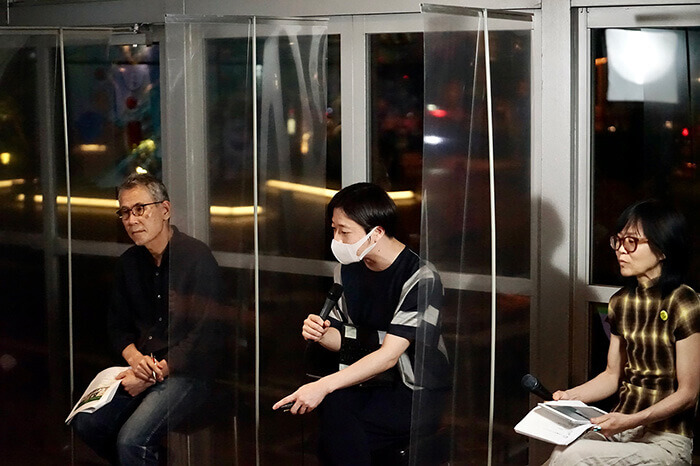
Two talks were held before and after the seven-day model house challenge, with both videos broadcasted live on YouTube. Ethical fashion influencer Arisa Kamada moderated the panel, which included cultural anthropologist Shinichi Tsuji, contextual designer Kotaro Watanabe, and writer Yumiko Sakuma. With their varying backgrounds and experiences, they shared their own unique interpretations of what is meant by being ethical or living ethically.
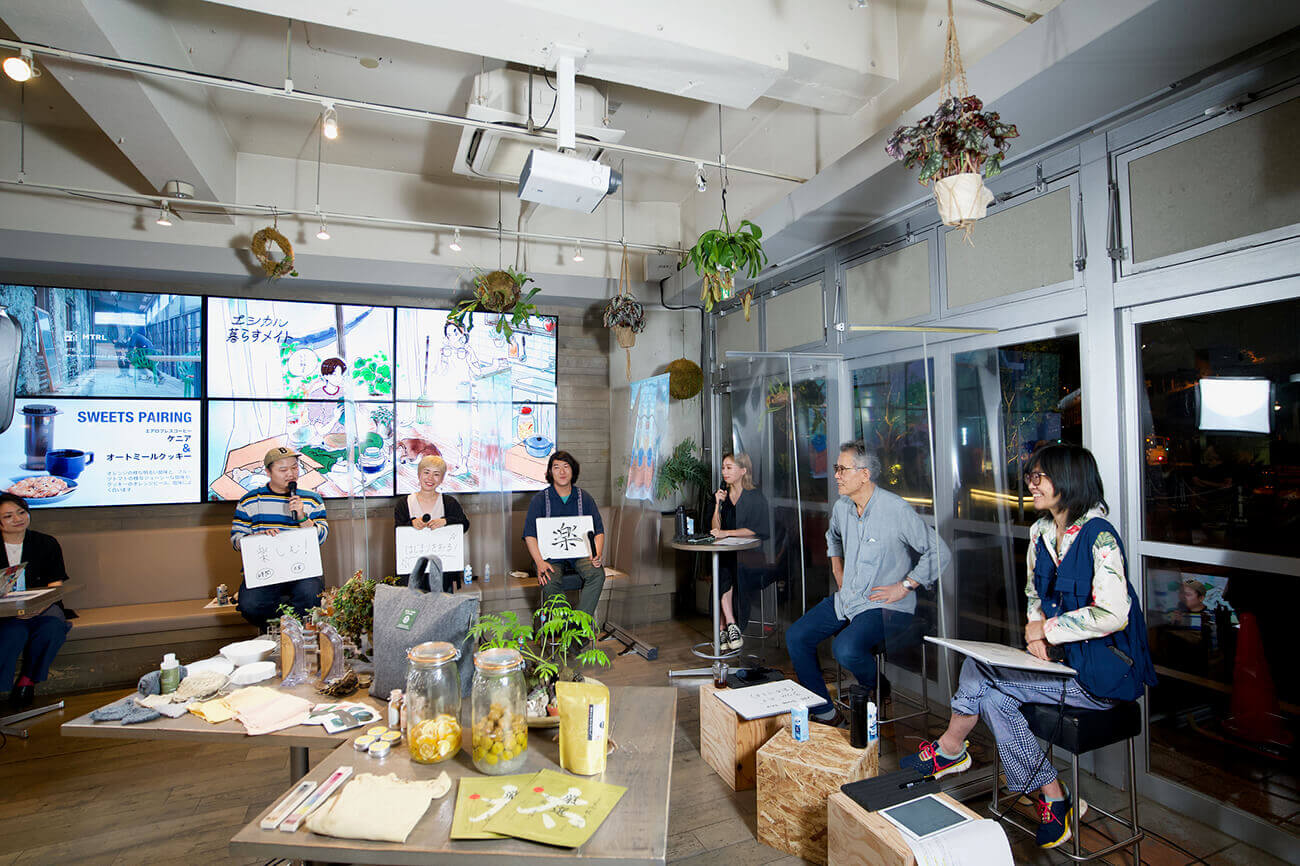
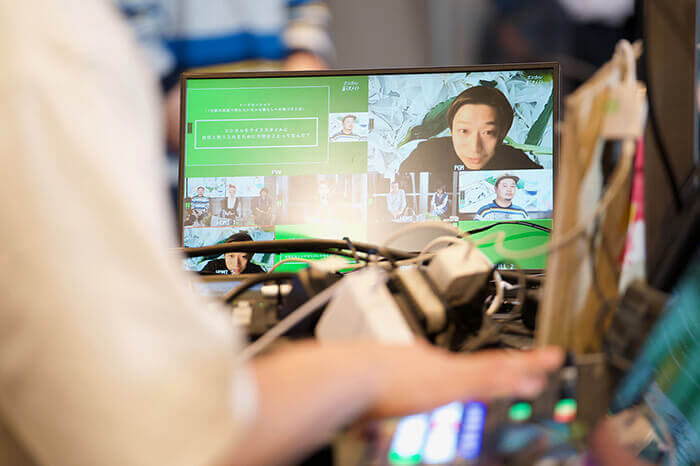
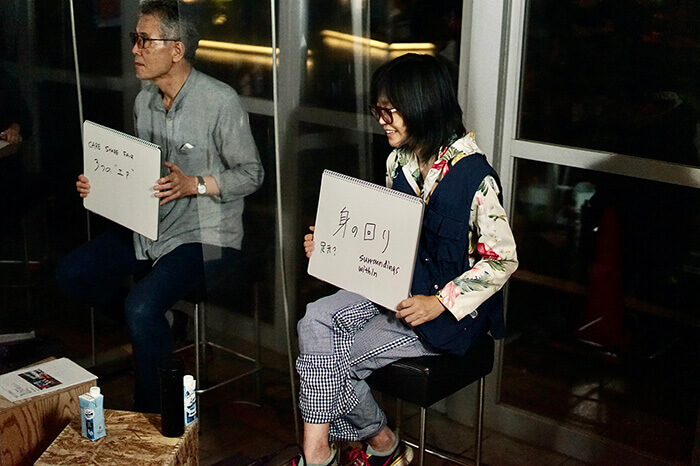
The “Day 0” kick-off event presented tips and messages on designing an ethical lifestyle. The dialogue between the different experts and the model house collectives sought to establish a basis of inspiration for viewers. In addition, a video of the Sekisui House Resource Recycling Center was shown to convey current sustainable efforts in the industry.
The conversation was further extended on the “Last Day” event, when the three collectives shed light on their learnings, and the experts weighed in on their achievements.
Communication Design
Key Visuals
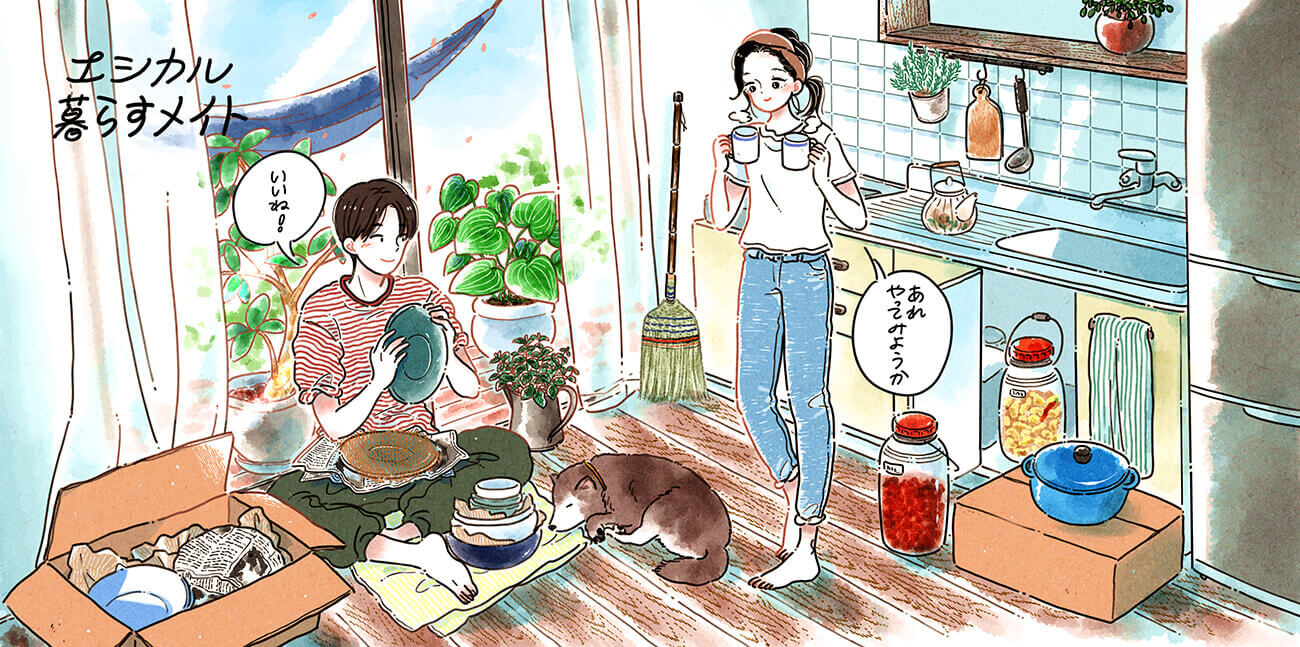
Key visuals were helmed by illustrator “mame”, who combines delicate emotions with a retro touch as part of their signature aesthetic.
Web and Social Media

Conclusion
Creating dialogue between companies, creators and experts
Young people today are challenged by a slew of social and environmental problems. Faced with the potential of a climate catastrophe, Millennials and Gen Z find themselves increasingly withdrawn from industries such as housing. What the Ethical Classmate campaign hoped to achieve was not just to connect young creators with companies like Sekisui House, but also to engage them in the participation of sustainability actions. As part of the preliminary input, the project members were invited to the Sekisui House Resource Recycling Center, where they were able to experience industry efforts firsthand, and pick up ideas for the seven-day challenge.
Driven by dialogue, the campaign created opportunities for everyone involved to share their ideas and concerns with one another. Instead of merely preaching to an audience, this collaboration empowered members to take an equal stake in not just the project, but also our future.
Next Contents




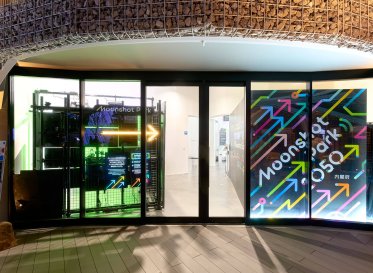

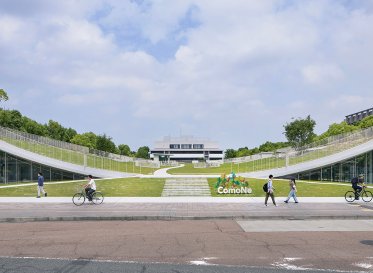



 ULTRA TOUR by STYLY Service Development
ULTRA TOUR by STYLY Service Development